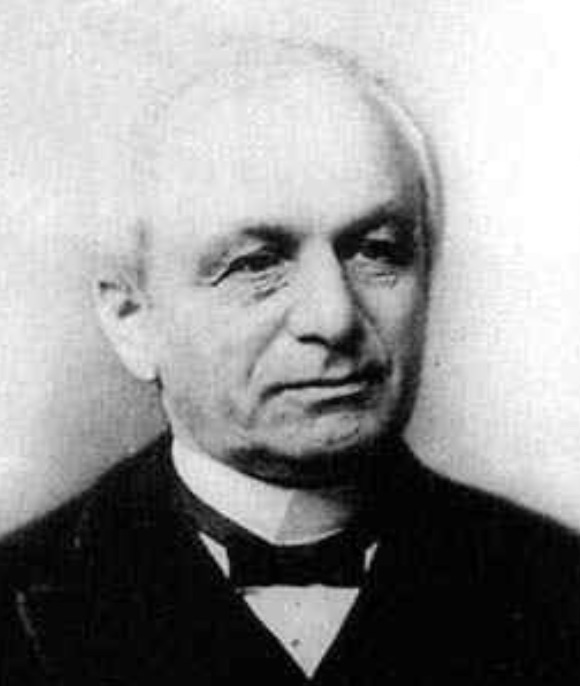
Leopold Kronecker was born on December 7, 1823, in Liegnitz, Prussia (now Legnica, Poland). He came from a well-to-do Jewish family and showed early mathematical talent. His parents provided him with private tutors to prepare him for entry into the Liegnitz Gymnasium. At the Gymnasium, he was mentored by the famous mathematician, Eduard Kummer, who nurtured his interest in mathematics and encouraged him to engage in research.
In 1842, Leopold entered the University of Berlin, where he attended lectures by some of the leading mathematicians of the time, including Carl Gustav Jacob Jacobi, Lejeune Dirichlet and Jakob Steiner. It was under the supervision of Dirichlet that he pursued a doctorate in algebraic number theory for which he was awarded a Ph.D. in August 1845.
Kronecker’s work covered various areas of mathematics, but his most significant contributions were in number theory and algebra. He collaborated with other mathematicians of his time, including Richard Dedekind, and the two worked on the theory of algebraic numbers. They jointly developed the theory of ideals, which became fundamental in the field of algebra.
Kronecker was also interested in elliptic functions and investigated their properties. His work on the theory of equations included the development of what is now known as Kronecker’s theorem, which provides conditions for the existence of rational solutions to certain polynomial equations.
Kronecker was independently wealthy from his family business, so he did not need income from a professorship. However, he enjoyed mathematical research and wanted to be actively involved in the mathematics community. In 1860, Eduard Kummer put forth Kronecker’s name for election to the Berlin Academy, seconded by Borchaardt and Weierstrass. and on January 23, 1861 was elected. His membership in the Berlin Academy provided him with the opportunity to lecture at Berlin University. These lectures focussed on his research in the areas of algebraic number theory, elliptic functions, the theory of determinants, the theory of equations and their interconnections. Kronecker’s lectures were pitched at a high level that discouraged average students, but were much admired by the few students who were able to persevere through their complexity.
In 1868, Kronecker was offered the chair of mathematics at the University of Göttingen, but he declined, preferring to stay immersed in the academic climate in Berlin, where, in 1869, he played a role in the establishment of the Berlin Mathematical Society .
Despite his mathematical achievements, Kronecker was known for his somewhat controversial and dogmatic views. He was reluctant to accept non-constructive existence proofs and rejected the use of irrational numbers and the use of infinitesimals. Reflecting his attitude toward what he considered artificial constructs of mathematics, he famously announced, “God created the integers, all else is the work of man.” This prompted him to strongly oppose the ideas put forth by mathematicians like Georg Cantor. Kronecker’s opposition to certain aspects of Cantor’s work on set theory, particularly the concept of actual infinity, led to some tensions between the two.
Leopold Kronecker continued his work in mathematics without an official appointment, until Kummer retired in 1883. Kronecker was then appointed to the chair of mathematics at the University of Berlin. He continued to serve in that role until his death on December 29, 1891.
Kronecker’s contributions to algebra and number theory continue to be influential, and his ideas have left a lasting impact on these fields. Despite the controversies in which he was embroiled, his work laid the foundation for many developments in mathematics that followed, and he is remembered as one of the prominent mathematicians of the 19th century.
